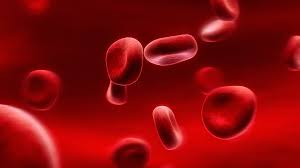
Breaking News
 Israeli Prime Minister, Netanyahu will meet with Trump on Wednesday and deliver instructions...
Israeli Prime Minister, Netanyahu will meet with Trump on Wednesday and deliver instructions...
 Elon Musk Offers To Cover Legal Bills Of Epstein Survivors Who Identify New Names
Elon Musk Offers To Cover Legal Bills Of Epstein Survivors Who Identify New Names
 Red Alert Emergency Broadcast! Tune In NOW As Alex Jones Analyzes The Insane Revelations...
Red Alert Emergency Broadcast! Tune In NOW As Alex Jones Analyzes The Insane Revelations...
 330 gallons of sulphuric acid was purchased for Epstein Island on the day the FBI opened...
330 gallons of sulphuric acid was purchased for Epstein Island on the day the FBI opened...
Top Tech News
 Drone-launching underwater drone hitches a ride on ship and sub hulls
Drone-launching underwater drone hitches a ride on ship and sub hulls
 Humanoid Robots Get "Brains" As Dual-Use Fears Mount
Humanoid Robots Get "Brains" As Dual-Use Fears Mount
 SpaceX Authorized to Increase High Speed Internet Download Speeds 5X Through 2026
SpaceX Authorized to Increase High Speed Internet Download Speeds 5X Through 2026
 Space AI is the Key to the Technological Singularity
Space AI is the Key to the Technological Singularity
 Velocitor X-1 eVTOL could be beating the traffic in just a year
Velocitor X-1 eVTOL could be beating the traffic in just a year
 Starlink smasher? China claims world's best high-powered microwave weapon
Starlink smasher? China claims world's best high-powered microwave weapon
 Wood scraps turn 'useless' desert sand into concrete
Wood scraps turn 'useless' desert sand into concrete
 Let's Do a Detailed Review of Zorin -- Is This Good for Ex-Windows Users?
Let's Do a Detailed Review of Zorin -- Is This Good for Ex-Windows Users?
 The World's First Sodium-Ion Battery EV Is A Winter Range Monster
The World's First Sodium-Ion Battery EV Is A Winter Range Monster
 China's CATL 5C Battery Breakthrough will Make Most Combustion Engine Vehicles OBSOLETE
China's CATL 5C Battery Breakthrough will Make Most Combustion Engine Vehicles OBSOLETE
Scientists Are Racing to Create Synthetic Blood in the Wake of Mass Tragedies

The Las Vegas shooting is the latest reminder that human blood isn't enough for massive, unexpected transfusions.
In the aftermath of the Las Vegas mass shooting on Sunday, hundreds of people lined up to give blood at a handful of donation centers in the area. It was a heartening scene—people hoping to help in any way they could. But if science lives out its promise, it will one day be an obsolete one.
Scientists have been working on creating synthetic blood for years now. The hope is that this substance will have a longer shelf life than human blood—which can only be refrigerated for 42 days—and eventually can be packaged and stored for use in emergencies. If this works, thousands of lives could be saved every year.
"People can't show up fast enough and then the system can't draw their blood fast enough to meet the need," said Allan Doctor, a physician and researcher at the Washington University in St. Louis. "Pulse nightclub, Boston Marathon, now Vegas—all of these are situations where there's a sudden unpredictable need for massive transfusion."
Doctor's lab has been working to create a blood substitute called ErythroMer, comprised of human hemoglobin, sourced from the red blood cells in expired blood at blood banks, and a synthetic polymer. This synthetic blood is actually a dehydrated powder, which would allow it to be stored for years, rather than weeks, and easily transported. Doctor envisions that it could eventually be packaged along with purified water so that doctors or EMTs could mix it when they needed to use it on a patient.
ErythroMer is still in the planning stages. It has only been tested on animals, and Doctor predicts that the team is about three to five years from the first human trials. Following that, it will need FDA approval, and then healthcare workers will need to be trained to use it properly to avoid infections. "It's important for us to have a bulletproof delivery system," Doctor told me. He predicts that it will be available in six to 10 years if the trials are successful, and if they can make a cost-effective formula.



